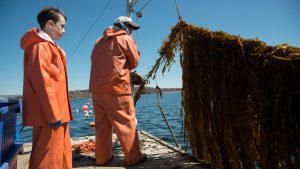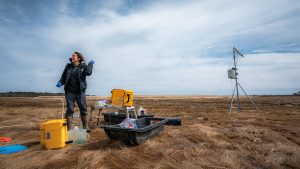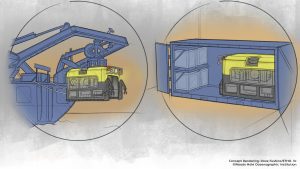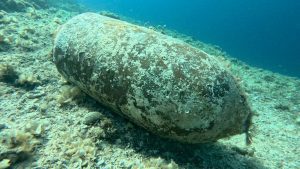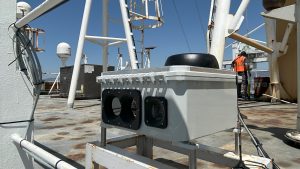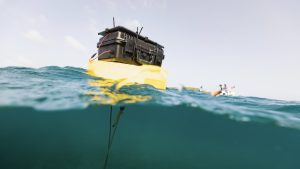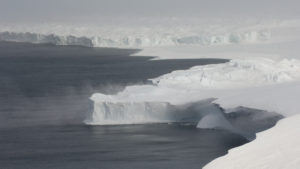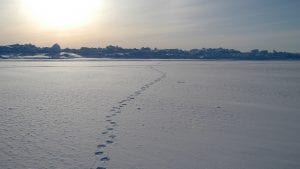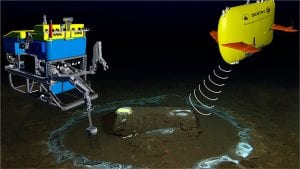Research Highlights
Oceanus Magazine
A hydrologist takes on a groundbreaking study to understand how groundwater moves through New England salt marshes in the winter.
News Releases
This technology uses thermal imaging to detect a whale’s body or spout and provides real-time information on their distance and bearing from a vessel.
Coral Research and Development Accelerator Program funding will advance acoustic enhancement research in the Caribbean
A new, integrated system will enable ocean science, exploration, and restoration efforts from a wider range of vessels.
SAMS will operate autonomously for years in hostile, difficult-to-reach locations that are Ground Zero for global sea-level rise
New method will provide accurate counts and breeding success of the threatened species in the light of climate change
News & Insights
An investigative report this week in the LA Times features the work of WHOI’s marine geochemistry lab in identifying the discarded barrels and analyzing samples from the discovery.


